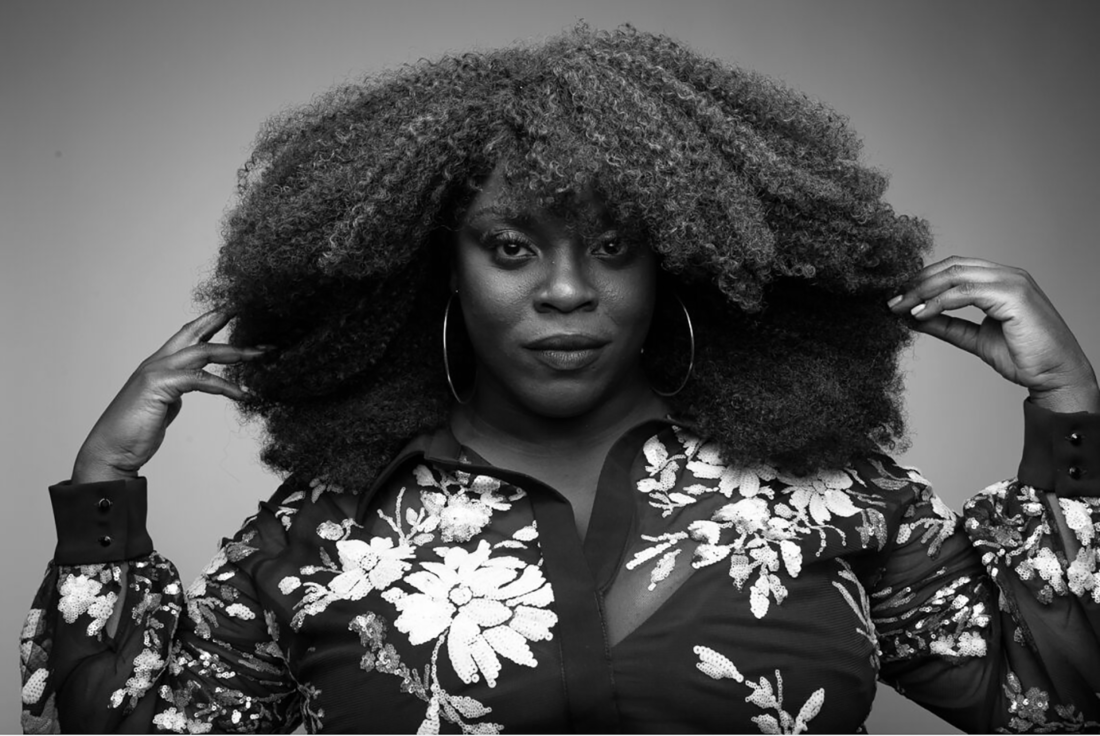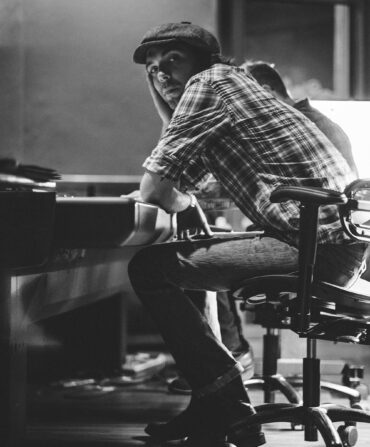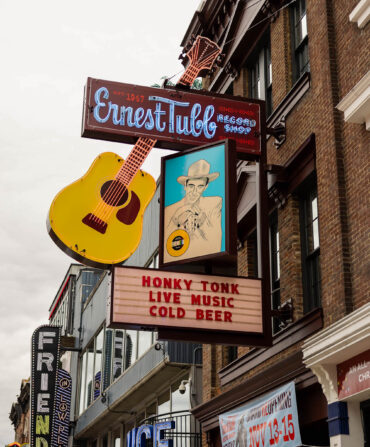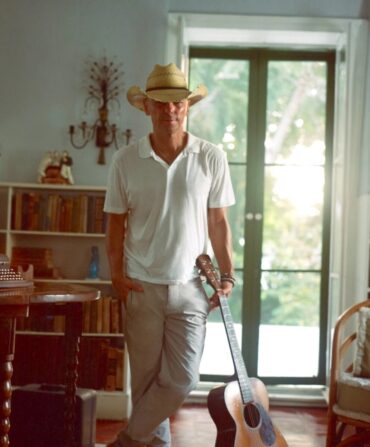Yola cut her teeth as what she calls a “hired frontperson,” lending her dynamic vocals and captivating stage presence to bands such as Massive Attack as well as fronting her own group, Phantom Limb. But the British-born singer would ultimately spread her wings as a solo artist in Nashville, where childhood heroes like Dolly Parton loomed large, as did the region’s musical history and energy. “There’s so much that I love about the little interstate highway that goes between Nashville and Memphis,” she says. “I got to be in an environment with that mixture, to be in that meeting place where country and soul intersect.” That influence reveals itself on her phenomenal debut, Walk Through Fire. Recorded at Nashville’s Easy Eye Sound with co-writer and producer Dan Auerbach (The Black Keys), the album blends steel-guitar, sweeping melodies, and Stax-era soul.
Since the album’s release in February, Yola has debuted new music with the all-female country supergroup the Highwomen (Amanda Shires, Brandi Carlile, Maren Morris, and Natalie Hemby), toured with the likes of Kacey Musgraves and Maggie Rogers, and, most recently, nabbed a whopping four Grammy nominations, including best new artist and best Americana album. She’s just released a surprise deluxe edition of Walk Through Fire that features two new tracks— a cover of Elton John’s “Goodbye Yellow Brick Road,” and ”I Don’t Wanna Lie,” a previously unreleased song from the album’s original studio session. We caught up with Yola to talk about her musical influences, the house fire that changed her life, and the importance of putting in the effort—in relationships and beyond. Read the interview and listen to the new songs below.
Walk Through Fire was recorded in Nashville, but you’re originally from outside of Bristol, UK. Tell me a little bit about where you grew up, and how you first got into music.
We were poor, and we were isolated both by being far from the city, but also far from other people of color. My early experience with music was one of reaching out to people who I felt looked like me, or maybe sang like me, or experienced life in a similar way. I remember the first time that became evident: I was listening to the [Nina Simone] album Young, Gifted, and Black. I’d never heard a song addressed to me, a young black person—gifted or not. [Laughs] That had never happened! It dawned on me how many times friends of mine, peers of mine, had been able to feel as though a song was designed perfectly for them, and yet I’d been waiting all this time to hear this one song that was directed toward me. It became even more important that I understood where it came from, what it influenced.
Did that drive you to become a musician yourself?
I sang and danced as soon as I could walk and talk. I was always trying to reconcile what my voice sounded like—because I didn’t really mimic all the R&B singers of the ‘90s. At that time, you had Brownstone, Bjork, Beck, and Nirvana, all back-to-back next to each other in the charts in the UK, so you got used to this idea of everything being mixed in together. That’s been quite a tradition for British songwriters. The Beatles are a great example of being very genre-fluid. Elton John was very genre-fluid in his interpretation of music, as was Joe Cocker. The charts reflected that, and luckily, because of that broad palette, I didn’t feel as though there was nowhere I could find my voice. I just knew I had to keep searching. So I stumbled upon Aretha. I stumbled upon Mavis. I stumbled upon Dolly. All these aspects—the ways to sing, the ways to write—helped me make sense of what was coming out of my face.
Now you’ve shared a stage with Dolly and Mavis—at the Newport Folk Festival, where your work with the Highwomen made its live debut. What drew you to the Highwomen’s movement to make country radio and music a more inclusive space?
It was just such a joyful thing to be a part of. I got the call, Brandi [Carlile] on the phone: “We’re trying to change the conversation—put enough boss energy into a room that it’s going to be very hard to ignore. I just listened to your record, and I think you need to be part of that. Are you nearby?” And I was like, “I will make myself nearby.” [Laughs] And so we laid down a vocal. It meant the world to me to be invited, to talk to Brandi and for her to be fully aware of the conversation that needed to be had [in country music]—that it needed to be intersectional. The Highwomen couldn’t be a movement exclusively for white women, the way many feminist agendas can find their way, accidently, into not including people of color. It was just this really natural, happy marriage—an environment of people exchanging their love of music, making new music, for a really righteous reason.
It’s easy to understand why Walk Through Fire moved Carlile. The album pulls from some deeply personal life events, including a literal fire at your home.
I was in a house fire in 2014. It was a real turning point for me. That’s when I decided that I needed to have some sense of agency, some sense of autonomy. My burns, by and large, were superficial—I did have to be bandaged up, but I got away from that situation better than most would have. And that gave rise to me thinking that I wanted to go back into music. I had taken a break from music for a few years. I felt like I had reached a dead end. I was a ‘topline writer,’ which meant that lyrics and melody were my main trade, and I was by and large kept from playing an instrument or writing the chords. I realized I was in an environment that would allow me to grow, but it hadn’t really landed with me until everything was threatened to be lost, my life included. I was like, “Let’s put out the fire and get on with life—I’ll just start writing something.”
A great starting point for people new to Walk Through Fire is “It Ain’t Easier”—a song you wrote yourself that builds from a steel-guitar-tinged ballad to an emotional, powerhouse anthem. What inspired it?
I’m sentimental as heck. Left to my own devices, as an achingly single woman, I gave myself a little sonic checklist of things that you might want to do when you finally find love. “It Ain’t Easier” was about the idea that if you love someone, or if you’re even thinking about loving someone, you’d better love the work. [Laughs] It’s a call to arms for people to prioritize love. …At a certain point in [singing] this song, I have to lose my shit. And I can’t lose it in an inauthentic way. I have to go there, so you can believe what I’m saying. My interpretation of that part—“All you got to do is try”— got more and more extra every time I said it. By the time we got to the recording of it, I’d been singing this song for about a year, and I wanted to get that sense of credence, of urgency. The entire song is building to that moment and to the point that you don’t even have to nail it—you’ve just got to try. That’s all. The number of relationships I’d been in where people didn’t even have the wherewithal to try was second to none. That was the point of the song, and certainly the point of the recording: You haven’t got to be perfect, to be slick, to nail it. You’ve just got to bother.








